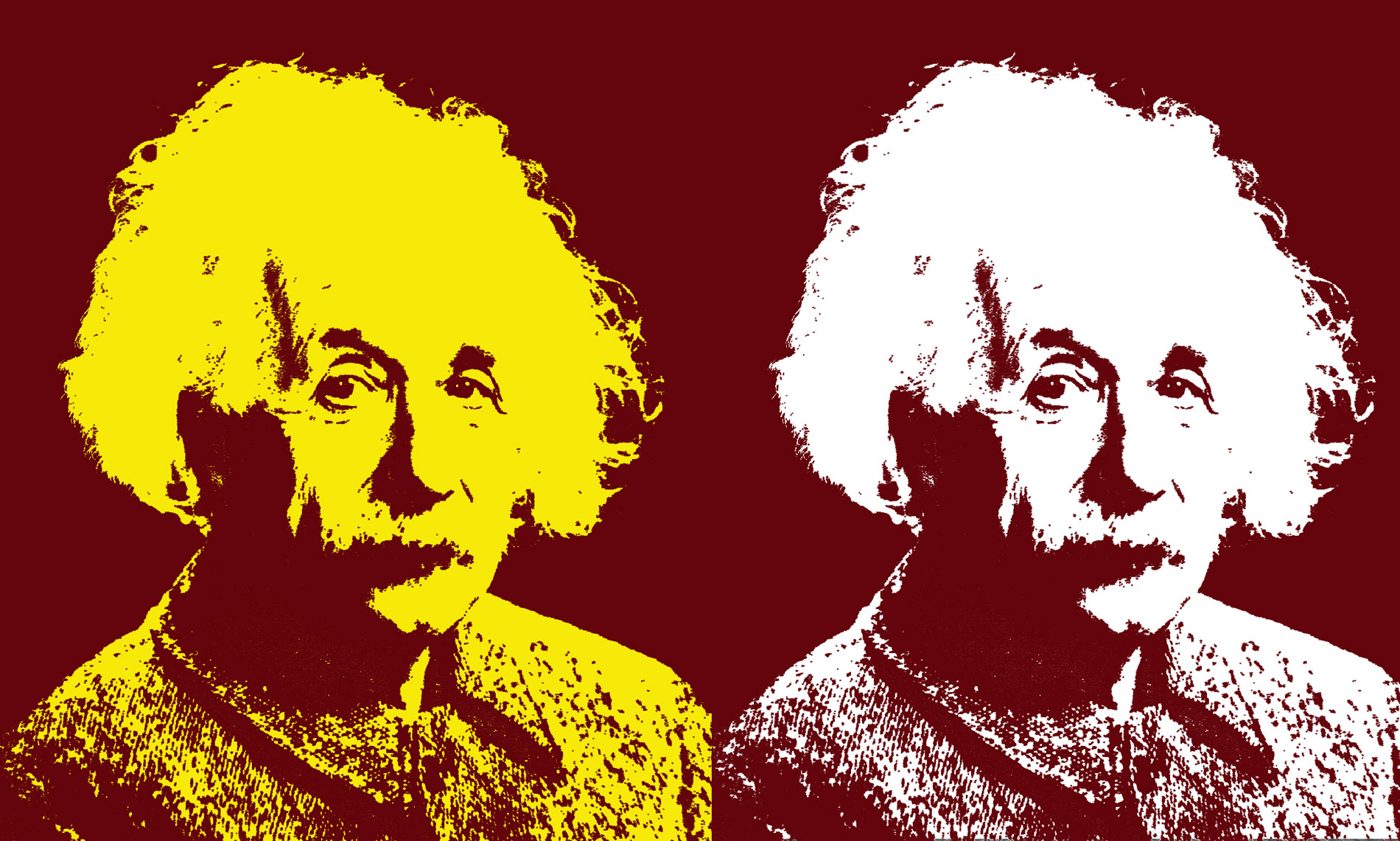
“I believe that I have cosmic religious feelings. I never could grasp how one could satisfy these feelings by praying to limited objects. The tree outside is life, a statue is dead. The whole of Nature is life, and life, as I observe it, rejects a God resembling man.
Man has infinite dimensions and finds God in his conscience. [A cosmic religion] has no dogma other than teaching man that the Universe is rational and that his highest destiny is to ponder it and co-create with its laws. In the face of creation I feel very humble. It is as if a spirit is manifest infinitely superior to man’s spirit. Through my pursuit in science I have known cosmic religious feelings. But I don’t care to be called a mystic. I like to experience the Universe as one harmonious whole. Every cell has life.
Matter, too, has life; it is energy solidified. Our bodies are like prisons, and I look forward to be free, but I don’t speculate on what will happen to me.
I live here now, and my responsibility is in this world now. I deal with natural laws. This is my work here on earth. The genuine scientist is not moved by praise or blame, nor does he preach. He unveils the Universe and people come eagerly, without being pushed, to behold a new revelation: the order, the harmony, the magnificence of creation!
And as man becomes conscious of the stupendous laws that govern the Universe in perfect harmony, he begins to realize how small he is. He sees the pettiness of human existence, with its ambitions and intrigues, its ‘I am better than thou’ creed. This is the beginning of cosmic religion within him; fellowship and human service become his moral code.
Without such moral foundations, we are hopelessly doomed. The God Spinoza revered is my God, too: I meet Him everyday in the harmonious laws which govern the Universe. My religion is cosmic, and my God is too universal to concern himself with the intentions of every human being. I do not accept a religion of fear; My God will not hold me responsible for the actions that necessity imposes. My God speaks to me through laws.
I believe in one thing—that only a life lived for others is a life worth living. We must begin with the heart of man—with his conscience—and the values of conscience can only be manifested by selfless service to mankind.
If we want to improve the world we cannot do it with scientific knowledge but with ideals. Confucius, Buddha, Jesus and Gandhi have done more for humanity than science has done. I believe that we don’t need to worry about what happens after this life, as long as we do our duty here—to love and to serve. I have faith in the Universe, for it is rational. Law underlies each happening. And I have faith in my purpose here on earth.
I have faith in my intuition, the language of my conscience, but I have no faith in speculation about Heaven and Hell. I’m concerned with this time—here and now. You must warn people not to make the intellect their God. The intellect knows methods but it seldom knows values, and they come from feeling. If one doesn’t play a part in the creative whole, he is not worth being called human. He has betrayed his true purpose. And the traditional religions worry me.
Their long history proves that they have not understood the meaning of the commandment: Thou shalt not kill. If we want to save this world from unimaginable destruction we should concentrate not on the faraway God, but on the heart of the individual…” (source)based on interviews William Hermanns had with Einstein in 1930, 1943, 1948, and 1954
![Albert Einstein during a lecture in Vienna in 1921 -- By Ferdinand Schmutzer - http://www.bhm.ch/de/news_04a.cfm?bid=4&jahr=2006 [dead link], archived copy (image), Public Domain, https://commons.wikimedia.org/w/index.php?curid=34239518 -- modifié par / modified by SK pour / for Eden Saga albert-einstein-jeune-688po](https://eden-saga.com/wp-content/uploads/albert-einstein-jeune-688po.jpg)


